Keeping South Sudanese culture alive
People
St Josephine Bakhita, whose feast day was celebrated last month, is an inspiration for many African Catholics. LINDY MCNAMARA spoke to one South Sudanese man who has devoted most of his life to ensuring his Dinka heritage is passed on to the next generation.
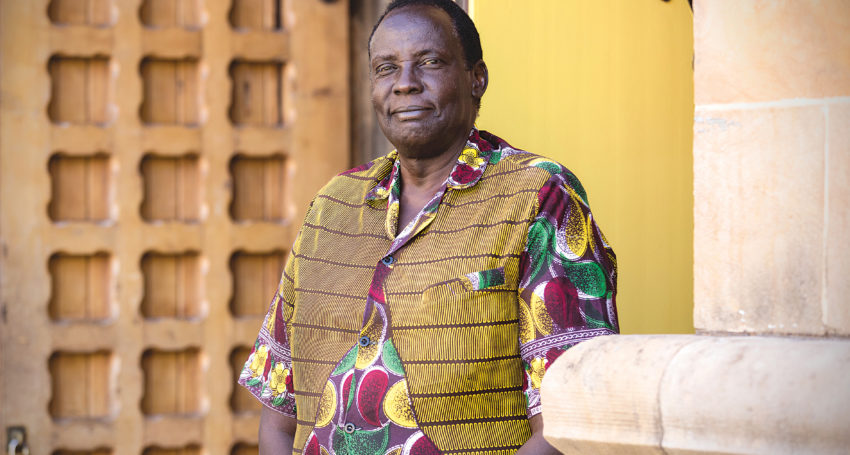
On first seeing Morwel Ater Morwel one is struck by his imposing presence. So very tall and seemingly far too big for his small humble abode in the north western suburbs.
After spending some time chatting with him you also learn that as much as he has embraced his new life in Australia over the past two decades, he still loves his war-torn homeland of South Sudan.
He is a proud Dinka man and is on a mission to ensure his fellow countrymen in Australia never lose touch with their cultural heritage.
Advertisement
Morwel is also a man of great faith. He grew up in a Catholic family, was baptised as a child and served as an altar boy and throughout the turmoil of his life has always kept a strong connection with the Church.
“My Catholic faith has been with me all the way through. Although I have been affected by other political ideologies, it has not made me abandon my faith. I still believe in the Catholic culture, Catholic education.”
Growing up in a Catholic family on a farm in South Sudan, Morwel said he was always told about St Bakhita’s life as a slave and how she was saved by God. Her story resonated with him and has provided inspiration during difficult times in his 65 years.
“My Mum used to tell me that some of my relatives were taken by the Turkish slave traders,” he explained.
“We share the same thing with St Bakhita – her sadness and misery as a young woman slave. It’s a good example that if you believe in God, He will answer your prayers. St Bakhita is a symbol of hope that God offers salvation.”
Morwel’s own story is also inspirational. As a young boy he attended school but his education was cut short as his country descended into civil war from 1955 to 1972. It also claimed the life of his father in 1966.
Always keen to learn, Morwel went to the city of Wau in South Sudan in the early 1970s, intent on continuing his education. However, there were no schools operating so he ventured further to Khartoum in North Sudan, securing a job in the railways as a mechanic/electrician.
He married in 1979 and started a family, eventually raising seven children as well as his brother’s son.
War broke out again in 1983 and for four years he returned to Wau to work in the railways. By then he was involved in the trade union movement representing workers and this put him at odds with the military that was governing the country.
“Things were getting worse – the Rebel movement was headed by a Dinka man. There was a cleansing of the Dinka and a lot of killing of people in Wau. A lot of people I knew were killed.”
He returned to Khartoum with his family along with many other South Sudanese who were trying to escape the bloodshed.
Surrounded by so many of his countrymen, Morwel was determined to ensure the heritage of the Dinka people not be lost. (Dinkas are a collection of ethnic groups from South Sudan who speak about 25 different dialects and are predominantly from farming backgrounds).
Advertisement
Given they were living in North Sudan it was a dangerous endeavour, but Morwel pushed ahead and established the Dinka Cultural Society and began language classes.
“I was seen as someone undermining by teaching Dinka. It became a problem and I started to have problems with the government. The threat became real and I decided to leave and move to Egypt and stayed there for six years as a refugee.”
In Egypt he continued to teach Dinka and brought his family to Australia to start a new life. They settled in Melbourne, which has a strong Sudanese community, and again Morwel set up classes and began teaching the language to the younger members.
“It’s important to be passing on their strong culture and values,” he said.
With the breakdown of his marriage Morwel moved to Adelaide in 2010 and joined the School of Languages in West Croydon, teaching Dinka and the Dinka culture to students in Year 11 and 12.
Today he is writing training manuals for others to teach the language. He has established the Australian Multicultural School for Adult Education and Literacy and runs classes in Andrews Farm, Elizabeth Park and Albert Park for Dinka women learning English. In his spare time he writes poetry, designs fabric patterns and loves to tell people about his homeland.



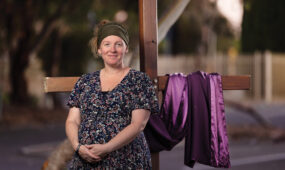
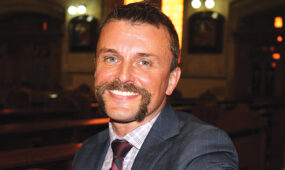
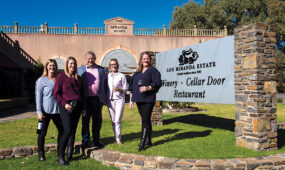
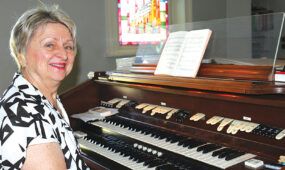

Comments
Show comments Hide comments